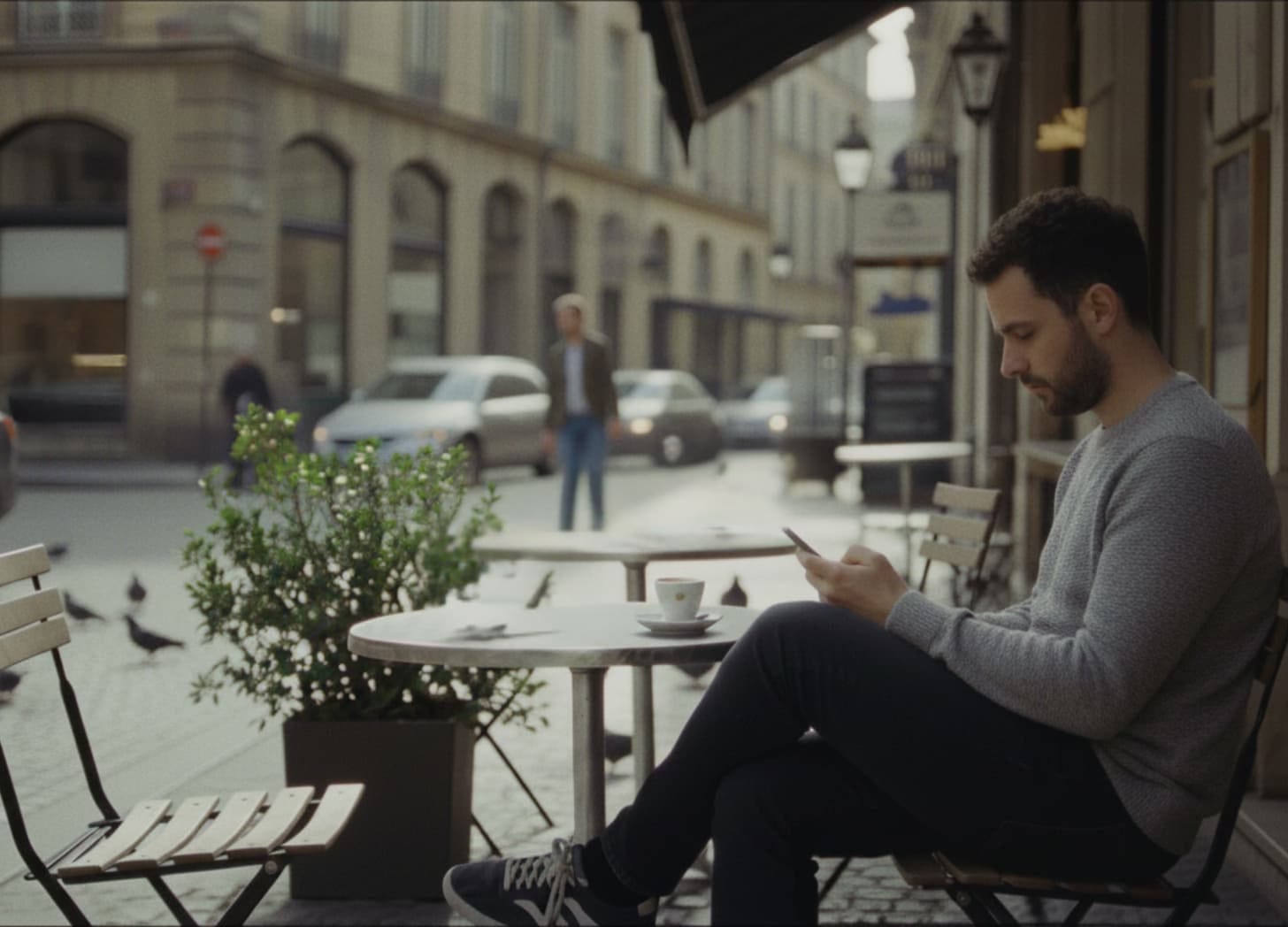The Quiet Joy Gay Men Keep Missing
Why safety feels like boredom and ordinary moments matter more than celebration
His shoulders dropped on a Thursday afternoon.
Not at a rally. Not holding hands in public as some defiant act of visibility. Not during any moment that Instagram would recognize as joy.
He was sitting on a bench outside a coffee shop in Lisbon, watching pigeons fight over a dropped croissant when his phone buzzed. A text from his husband about dinner. Nothing poetic. Just “Thai or Mexican?”
And his shoulders dropped.
He didn’t know they’d been up near his ears until gravity reclaimed them. He didn’t realize he’d been holding his breath through the entire morning until air suddenly felt optional instead of tactical.
That was me.
That’s the joy they don’t put on rainbow merch. The kind that feels like your ribcage remembering how to swing open. The kind that happens in 11-second intervals between scanning for threats.



